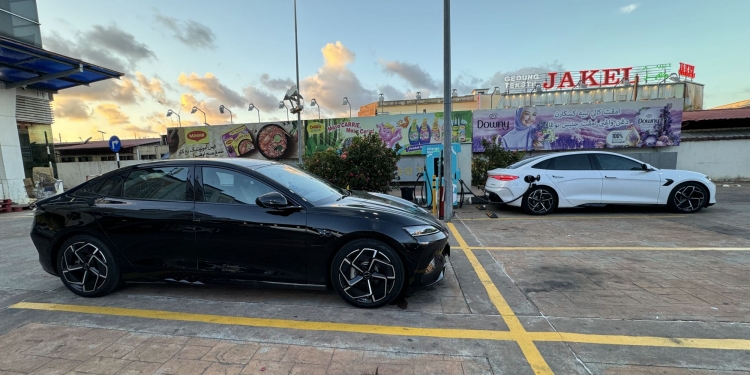Electric Vehicle (EV) registrations in Malaysia still show an upward trend based on the latest Road Transportation Department’s (JPJ) data published on the government’s open data platform.
A total of 10,663 EVs have been registered in Malaysia between January and June 2024. This marks a 141.85% increase from the same period (January to June 2023) last year which recorded 4,409 registrations. As a reference, a total of 13,301 EVs were registered for the full year of 2023.
Top 15 EV models for June 2024
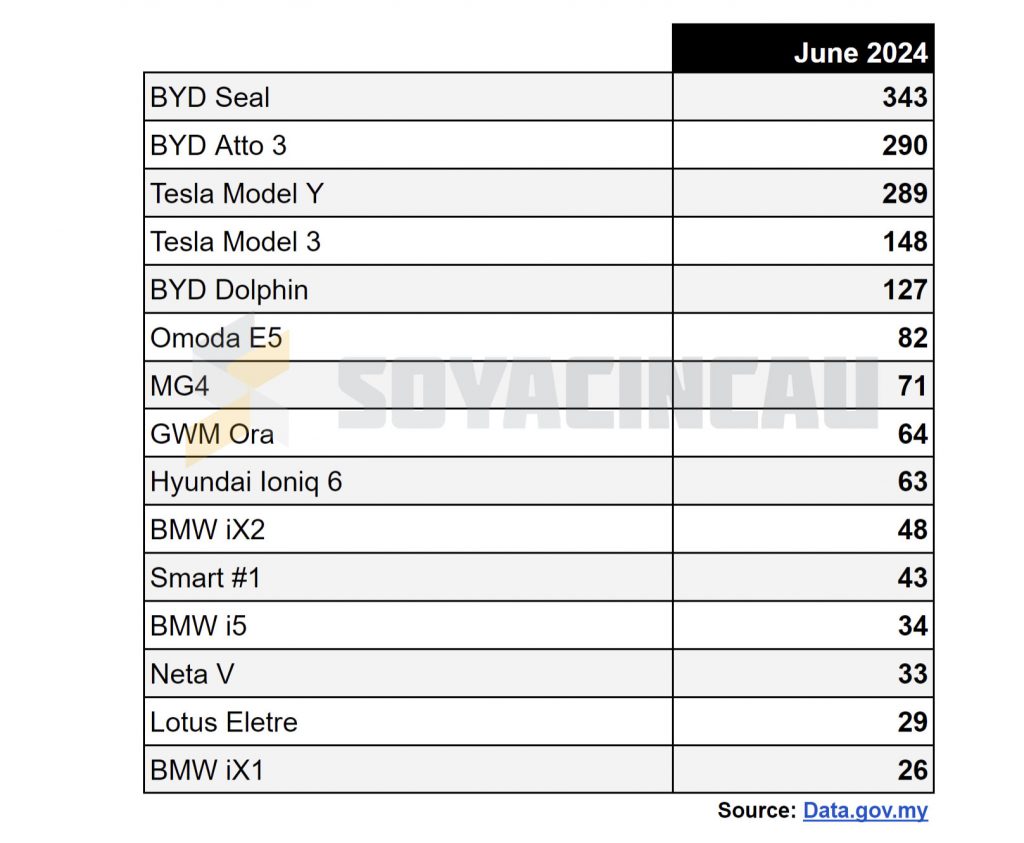
In June, BYD took the top two spots with the BYD Seal having 343 units registered followed by the Atto 3 with 290 units registered. This is followed by the Tesla Model Y and Model 3 in third and fourth place with 289 and 148 units registered respectively.
The affordable BYD Dolphin continues to take fifth place with 127 units registered last month. The Chery Omoda E5 moved up a spot last month with 82 units registered, overtaking the MG4 which recorded 71 registrations. This is followed by GWM Ora (presumably inclusive of Ora Good Cat and 07) with 64 units and the Hyundai Ioniq 6 made a surprise appearance on the Top 15 list with 63 units registered.
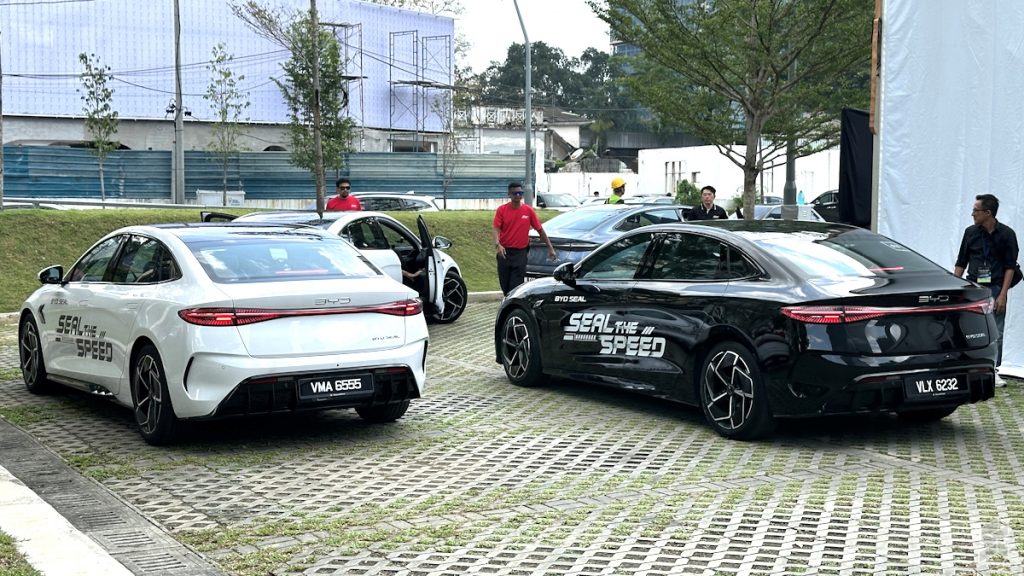
The iX2 seems to be the most popular BMW EV at the moment, taking 10th place with 48 units registered last month. This is followed by the Smart #1 with 43 units, BMW i5 with 34 units and the Neta V with 33 units. Electric hypercar, Lotus Eletre, is still on the list with 29 units registered, followed by BMW iX1 at #15 with 26 units.
Top 15 EV models between January to June 2024
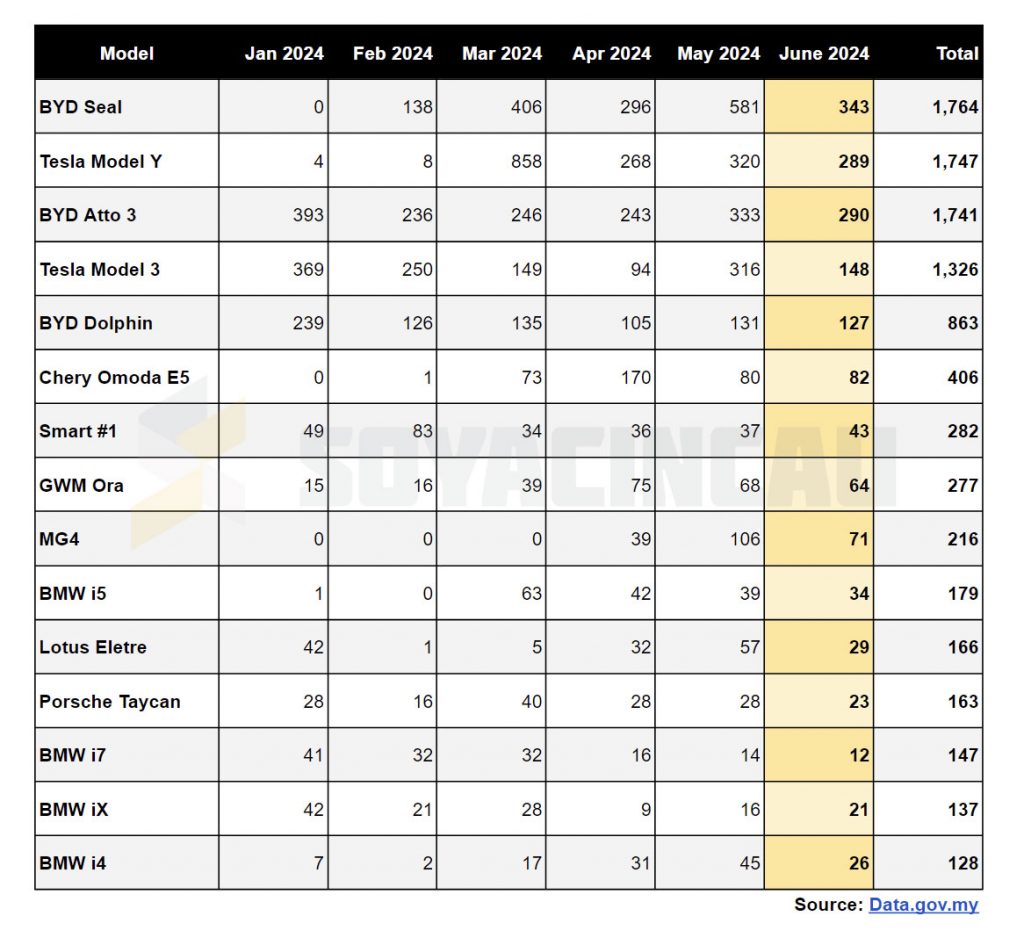
For the first 6 months of the year, BYD and Tesla continue to dominate the top 5 models with the likes of the BYD Seal, Tesla Model Y, BYD Atto 3, Tesla Model 3 and BYD Dolphin. The other Chinese or Chinese-backed EVs such as the Omoda E5, Smart #1, GWM Ora and MG4 are also gaining traction with each brand having registered over 200 units this year so far.
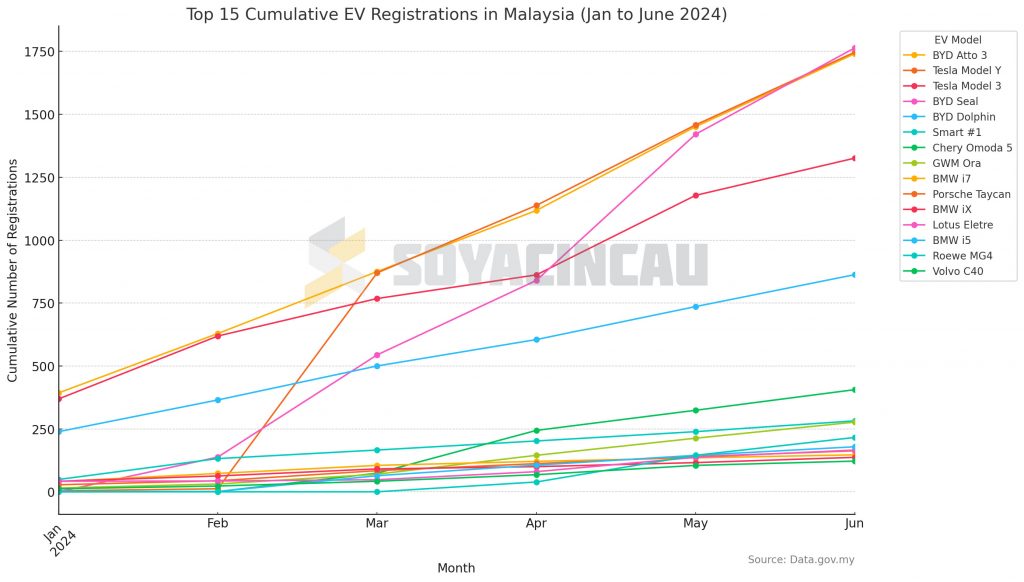
BYD remains the most popular EV brand with a total of 4,368 units registered in H1 2024, followed by Tesla with 3,079 units and BMW with 807 units. Despite having just one model in a single variant, Chery has registered 406 units, followed by Smart with 282 units and GWM Ora with 277 units.
With the rise of affordable Chinese EV brands, we are seeing a decline in EV registration from the other traditional continental brands. Mercedes-Benz, which was Malaysia’s #3 EV brand with 363 units registered in H1 2023, has fallen to 7th place with only 232 units registered this year so far. Volvo which used to be #4 a year ago with 284 units registered in H1 2023 have fallen to #8 in H1 2024 with 219 units.
EVs recorded more registrations than Hybrids for two consecutive months
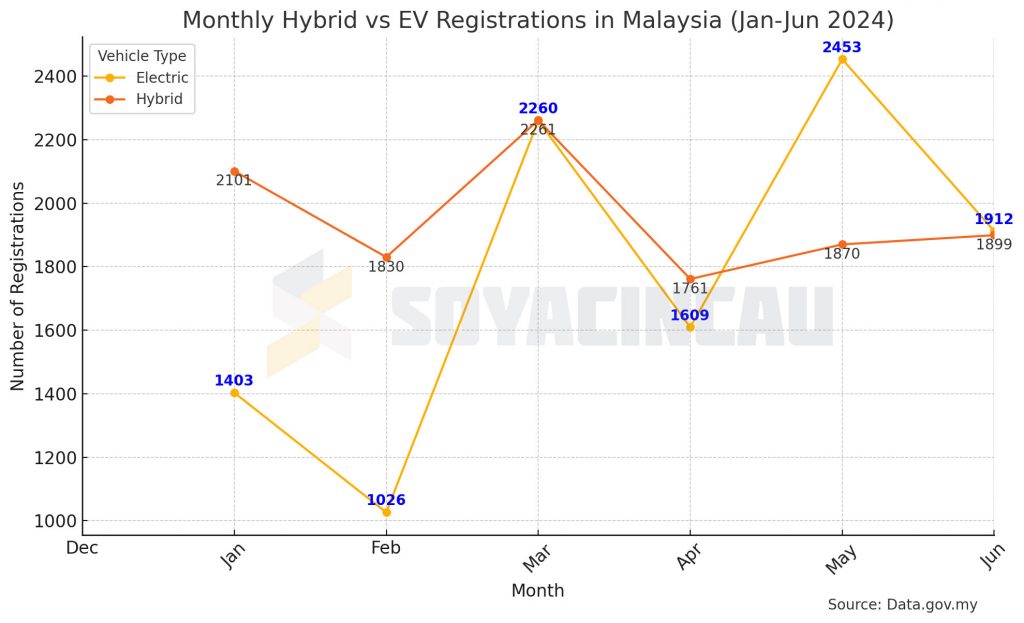
With the ongoing talks of rationalising the RON95 fuel subsidy, it appears that consumers are gravitating slightly towards EVs rather than hybrids. In the past two months, there have been more registrations for battery electric vehicles than petrol hybrids but the gap seems to be smaller in June with 1,899 Hybrids and 1,912 EVs registered.
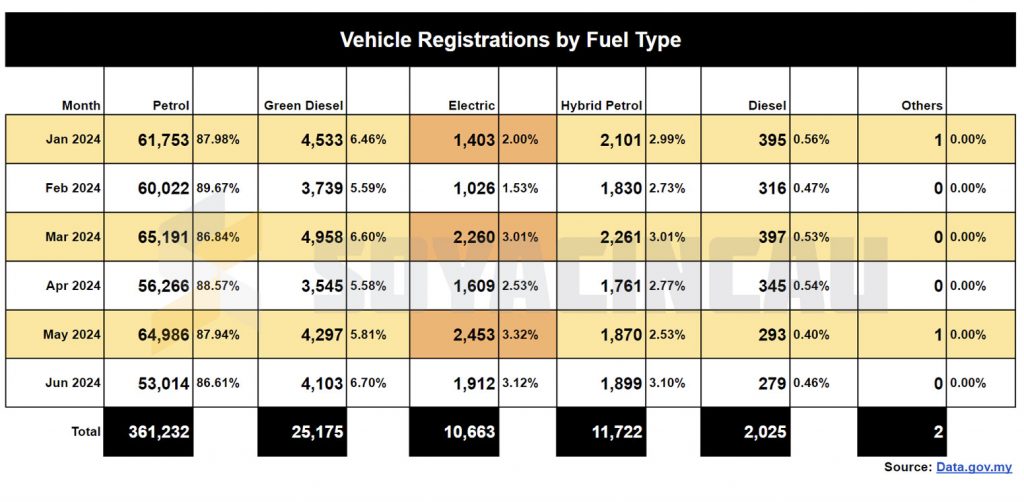
In June itself, a total of 3.12% of vehicles registered are EVs, while 3.10% are petrol hybrids. Petrol vehicles are still the most popular vehicle type at 86.61%, followed by green diesel at 6.70%.
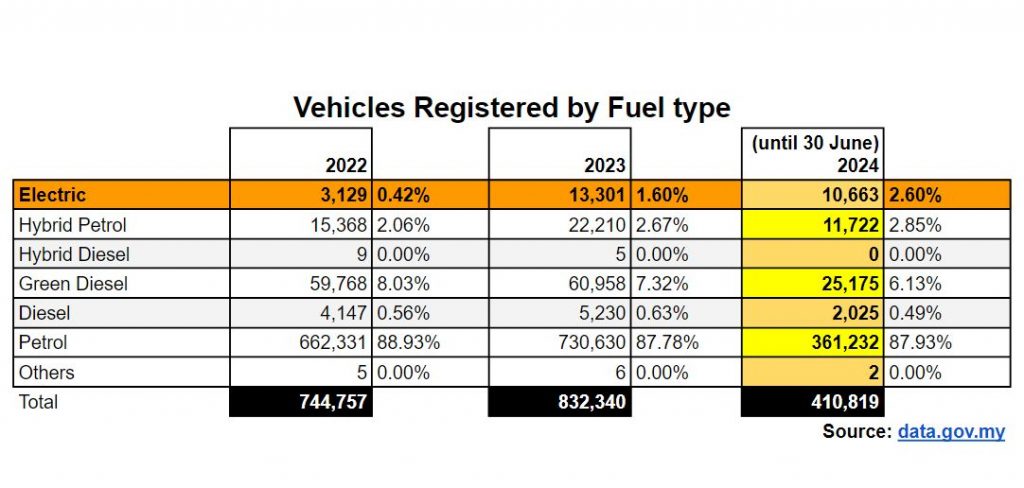
Overall, there is a slow and steady increase in EV registrations which recorded just 0.42% in 2022 and 1.60% in 2023 of the total vehicle registration volume. For this year to date, EVs have accounted for 2.60% of total vehicle registrations. Based on the current progress, Malaysia is still far from achieving its 15% of total industry volume (TIV) EV target by 2030.
At the moment, the government continues to provide tax breaks for fully imported EVs and road tax waivers until the end of 2025. However, affordable fully imported EV options are still limited due to the current RM100,000 ruling.
Proton and Perodua were tasked to introduce affordable locally assembled EVs by 2025. Proton has recently announced that its first EV is launching in December. The rumoured Proton e.Mas 7, a purported rebadge of the Geely Galaxy E5, is expected to be priced above RM100,000. Meanwhile, Perodua is only expected to release its first EV by 2025.
[ SOURCE ]

